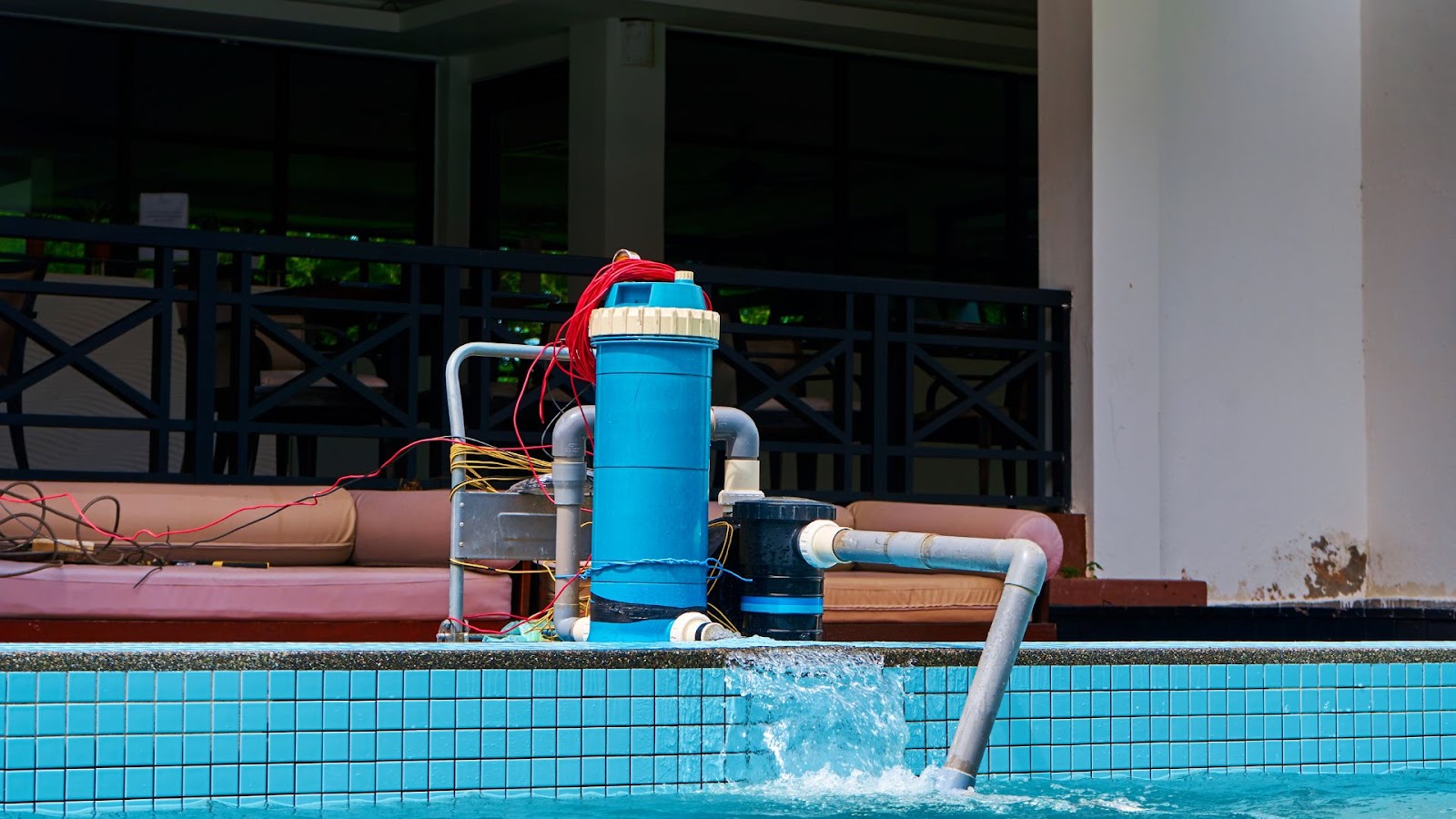A pool pump is the heart of your swimming pool’s circulation system, ensuring that water remains clean, clear, and safe for swimming. However, like any mechanical device, pool pumps can experience wear and tear over time, leading to inefficiencies or even complete failure. For pool owners in Tampa, FL, understanding the signs that your pool pump needs repair can save you from costly replacements and ensure your pool remains a refreshing oasis. Here are some critical red flags to watch out for that might indicate the need for pool pump repair.
One of the most noticeable signs that your pool pump requires attention is unusual noise. While pool pumps naturally emit some sound during operation, a sudden increase in noise level or strange sounds like grinding, screeching, or rattling can indicate a problem. These noises often suggest that the pump’s motor bearings are worn out or that there is debris inside the pump housing. Ignoring these sounds could lead to more severe damage, so it’s essential to address them promptly with a professional.
Another sign that your pool pump may need repair is reduced water flow. If you notice that the water in your pool is not circulating as efficiently as it used to, or if the water pressure from the pool jets seems weaker, this could indicate a clogged or malfunctioning pump. Reduced water flow can result from various issues, such as a clogged impeller, a dirty filter, or a damaged pump seal. When water flow decreases, the pump has to work harder, which can lead to overheating and, eventually, motor failure. In such cases, immediate pool pump repair is necessary to prevent further complications.
Leaks around the pool pump are another red flag that should not be ignored. Pool pumps are designed to be watertight, so any visible water around the pump or damp spots on the ground nearby could indicate a leak. Leaks can occur due to worn-out seals, cracked pump housing, or loose fittings. Over time, leaks can cause significant damage to the pump’s internal components and may even lead to electrical issues if water reaches the motor. To avoid extensive damage, timely repair is crucial when you spot any leaks.
A pool pump that frequently turns on and off or struggles to maintain consistent operation is another sign that something is wrong. This issue, known as short cycling, can be caused by several factors, including a clogged filter, an air leak in the suction line, or a malfunctioning pressure switch. Short cycling not only reduces the efficiency of your pool pump but also places extra strain on the motor, which can lead to premature failure if not addressed.
If your pool pump is not priming correctly, it’s another indicator that repair may be necessary. Priming is the process by which the pump removes air from the system to create the necessary vacuum for water circulation. If the pump struggles to prime, or if it loses prime frequently, this could indicate an air leak, a clogged intake, or a faulty pump lid gasket. When a pump fails to prime, it cannot effectively circulate water, leading to potential issues with water quality and overall pool maintenance. Timely repair is essential to ensure your pump primes correctly and maintains optimal performance.
Another subtle yet significant sign that your pool pump may need repair is an increase in energy consumption. If you notice a spike in your electricity bills without a corresponding increase in pool usage, it could be due to an inefficient pump. A failing pump often requires more energy to operate, especially if the motor is struggling or the pump is clogged. Investing in timely pool pump repair can help restore your pump’s efficiency, saving you money on energy costs in the long run.
Lastly, if your pool pump is more than five to seven years old and is exhibiting any of the above symptoms, it may be time to consider repairs or even replacement. While regular maintenance can extend the life of your pool pump, the wear and tear from years of operation can eventually take its toll. Consulting with a professional pool technician in Tampa, FL, can help you determine whether your pump needs repair or if it’s time to invest in a new one.
Recognizing the signs that your pool pump needs repair is crucial for maintaining the health and longevity of your pool. From unusual noises and reduced water flow to leaks and short cycling, these red flags should not be ignored. By addressing these issues promptly and seeking professional pool pump repair in Tampa, FL, you can ensure that your pool remains a safe and enjoyable place for relaxation. Don’t let a failing pump turn your pool into a costly headache—act now to keep your pool in prime condition.




